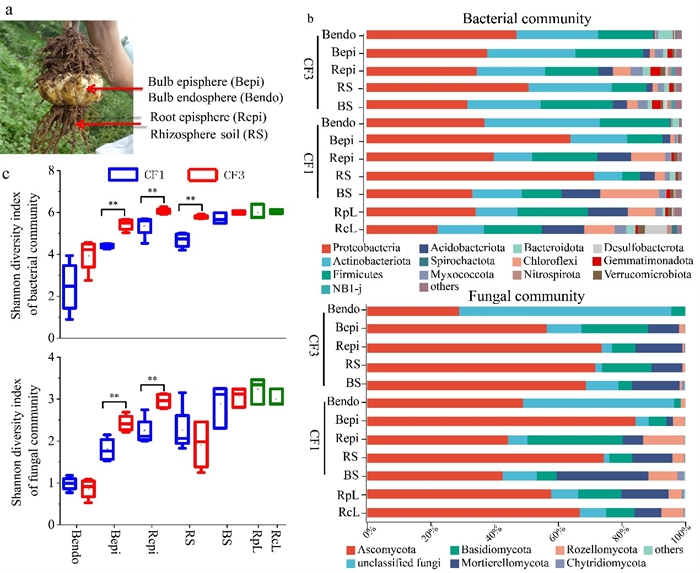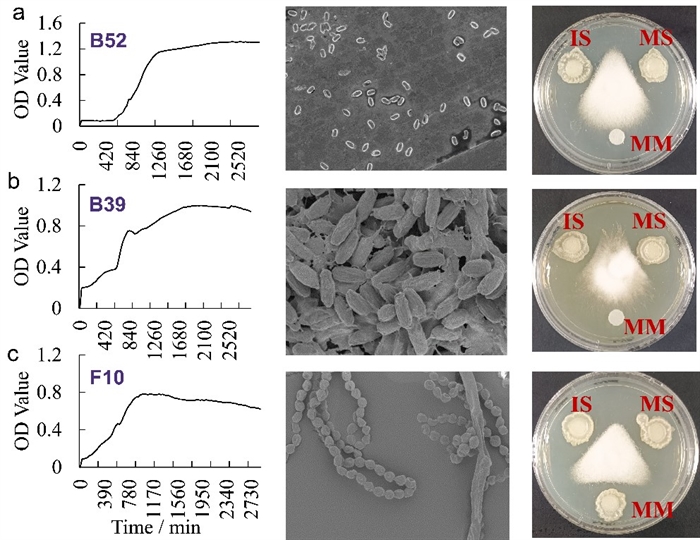
Newsroom
In a new study published in Horticulture Research, a team of researchers from the Institute of Subtropical Agriculture of the Chinese Academy of Sciences has demonstrated that designed synthetic microbial communities (SynComs) can significantly boost crop growth and curb soil-borne diseases, revealing a promising biocontrol strategy.
Plant endophytes, which live symbiotically within plant tissues, play a critical role in host health, nutrient uptake, and disease resistance. Using these microbes offers a sustainable alternative to chemical pesticides. However, selecting effective strains from complex natural microbiomes and assembling them into stable, functional SynComs remains a major challenge.
By integrating field sampling, microbiome sequencing, and functional assays, the researchers analyzed the endophytic microbiota of edible lilies under long-term monoculture. They found that continuous cropping enriched both the soil-borne pathogen Fusarium oxysporum and beneficial bacteria such as Pseudomonas and Bacillus, forming a network in an "antagonistic equilibrium." Burkholderiaceae and Pseudomonas were identified as key taxa maintaining this microbial balance.
Interestingly, about 50% of the endophytic bacteria originated from the soil, whereas less than 10% of fungi did, reflecting strong host selection on fungal members. The researchers isolated core antagonistic strains from lily bulbs, including Rhizobium, Methylobacterium, and the fungus Talaromyces, and constructed several SynComs. In tests, multi-strain consortia outperformed single isolates in both promoting plant growth and suppressing pathogens. Importantly, SynComs containing fungi were more effective than those composed solely of bacteria.
"Our work reveals how monoculture influences the plant microbiome and presents a novel strategy for constructing targeted SynComs to combat Fusarium wilt." said Prof. ZHU Baoli, corresponding author of the study.
Rationally designed microbial communities not only suppress pathogens but also promote plant growth, offering a sustainable solutions to replanting challenges and reducing pesticide overuse. These findings bridge microbial ecology and agricultural practice, with broad implications for green agriculture and soil health management.

Changes in the endophytic microbial community of lily caused by continuous cropping (Image by QIN Honglin)

Effectiveness and mechanisms of lily endophytic bacteria and fungi in antagonizing the pathogen Fusarium oxysporum. (Image by QIN Honglin)
